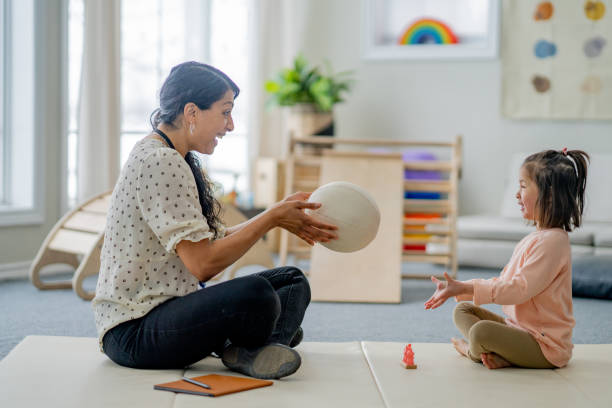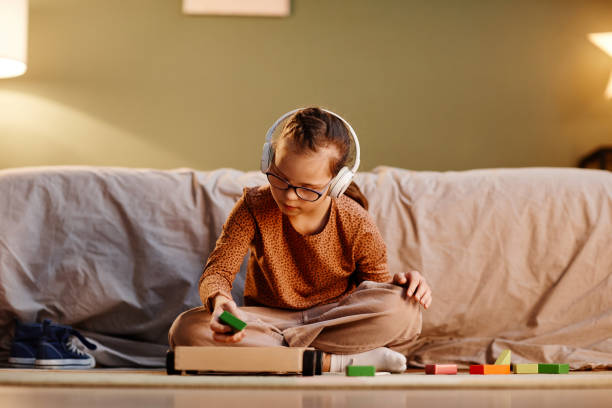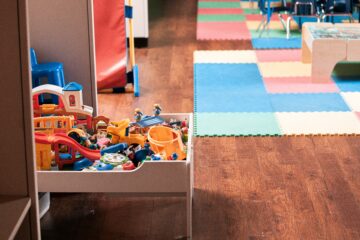As an educator or parent, you can wonder how best to support development through play. With thoughtful guidance, playtime provides rich opportunities for fostering cognitive, social, emotional, motor, and communication skills. Neurodiverse children have brains that work differently, often due to conditions like autism, ADHD, dyslexia, and others. For these children, play is especially important for learning and development. Play helps, Neurodiverse children improve their cognitive, social, emotional, and physical skills in an enjoyable, low-pressure way. It allows, children to explore their interests, try new activities, and learn through discovery, which helps build confidence and resilience. Play also improves opportunities for social interaction and bonding with other children, which could be challenging for some neuro-diverse kids. With the right sensory toys, you can help support your child’s growth in communication, motor skills, and emotional regulation.
It can be overwhelming for first-time parents to navigate the world of play-based learning. Remember that play is a natural and enjoyable way for your child to learn and grow. Start by observing what interests your child and providing toys and activities that match those interests. Joining in their play can strengthen your bond and help you better understand their needs and abilities. Creating a safe and inviting play space will encourage your child to explore and discover.
It can be a wonderful way to stay active and engaged with your child by supporting their development through play. As a calm and enjoyable way to interact with your child, sensory play is especially beneficial. Engage in activities that promote both fine and gross motor skills to keep you physically active. Play-based learning can enhance your child’s growth at any age.
It can be challenging to balance work and parenting, but play-based learning doesn’t have to be time-consuming. Look for opportunities to integrate play into everyday routines. Simple activities like playing with sensory toys during bath time or engaging in quick, open-ended play sessions can be highly beneficial. Using weekends or downtime to engage in more extended play activities can help ensure your child receives the developmental benefits of play while fitting into your busy schedule.

The Benefits of Sensory Play for Neurodiverse Children:
Sensory play offers tremendous benefits for neurodiverse children. Engaging multiple senses helps children develop cognitively and emotionally. Sensory toys provide opportunities for children to stimulate senses in a controlled, self-guided manner. Sensory play provides neurodiverse children opportunities for learning and development. It helps stimulate their senses and improves skills such as cognitive, language, problem-solving, and motor skills. Sensory play also helps develop a child’s brain and encourages creativity. Additionally, sensory play can calm and help reduce anxiety, restlessness, or behavioural issues in some children.
How can sensory play benefit children in the long run?
Sensory play provides benefits that extend well beyond childhood. Skills developed through sensory play, such as problem-solving, motor, and cognitive abilities are useful for life. Sensory play also builds neural connections in the brain that support learning, memory, and emotional regulation. When children engage in sensory play, they are developing skills and parts of the brain that will support them into adulthood. Sensory play in early childhood provides a foundation for success in school and beyond. In summary, sensory play provides a multitude of benefits for both short-term development and long-term success in neurodiverse children. Engaging children in sensory play with toys tailored to their needs and abilities can have a profound impact on their growth and learning. Sensory play can be incorporated into regular schedules to develop and customised:

Cognitive Growth:
Sensory play helps develop skills such as problem-solving, logic, and critical thinking. Toys like shape sorters, stacking toys, and puzzles encourages children to group, sorting, and sequence objects in a logical way. Sensory bins filled with materials like rice, beans, or kinetic sand gives children opportunities to scooping, pouring, measuring and comparing quantities. These open-ended activities boost cognitive flexibility and conceptual thinking.
Improved motor skills:
Sensory toys that encourage grasping, squeezing, and manipulating objects helps develop fine motor skills and hand-eye coordination. Toys with different textures, from soft plush toys to bumpy sensory balls, give children opportunities to experience different sensations. This helps them gains control and dexterity. Sensory play also helps developing gross motor skills through pulling up, crawling, walking, jumping, and balancing.
Emotional Self-Regulation:
Sensory play gives children opportunities to experience sensations in a controlled setting. This helps them learning to regulating emotional and behavioural responses to different stimuli. Soft music, calming scents and repetitive actions can have a soothing effect. Conversely, sensory toys that provide stimulation helps children channelling excess energy or frustration in a constructive way. Over time, sensory play teaches children strategies for self-soothing and emotional regulation.
What types of sensory toys are recommended for neurodiverse children?
There are many types of sensory toys that are ideal for neurodiverse children. Some recommendations include:
• Light up toys: Toys with flashing lights, such as fibre optic lamps, lava lamps, and projector toys, stimulate the visual senses.
• Puzzle toys: Puzzles, shape sorters and stacking toys helps develop cognitive and problem-solving skills. Look for large pieces with lots of texture.


